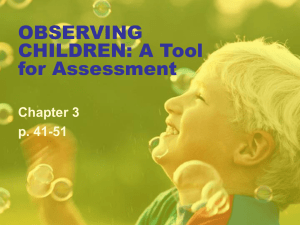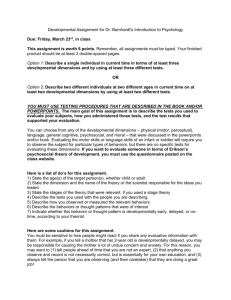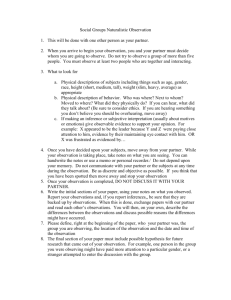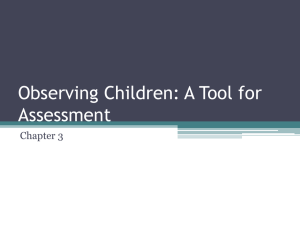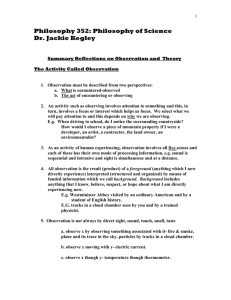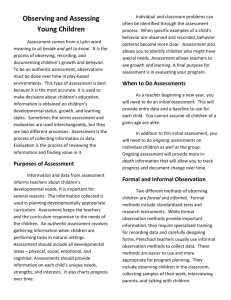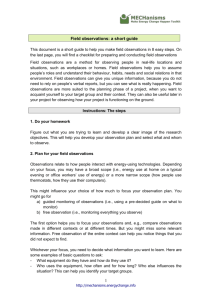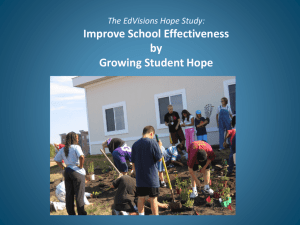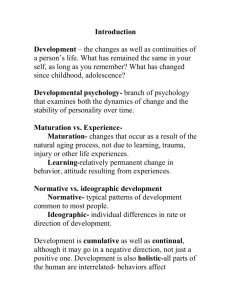Observation Journal Instructions
advertisement
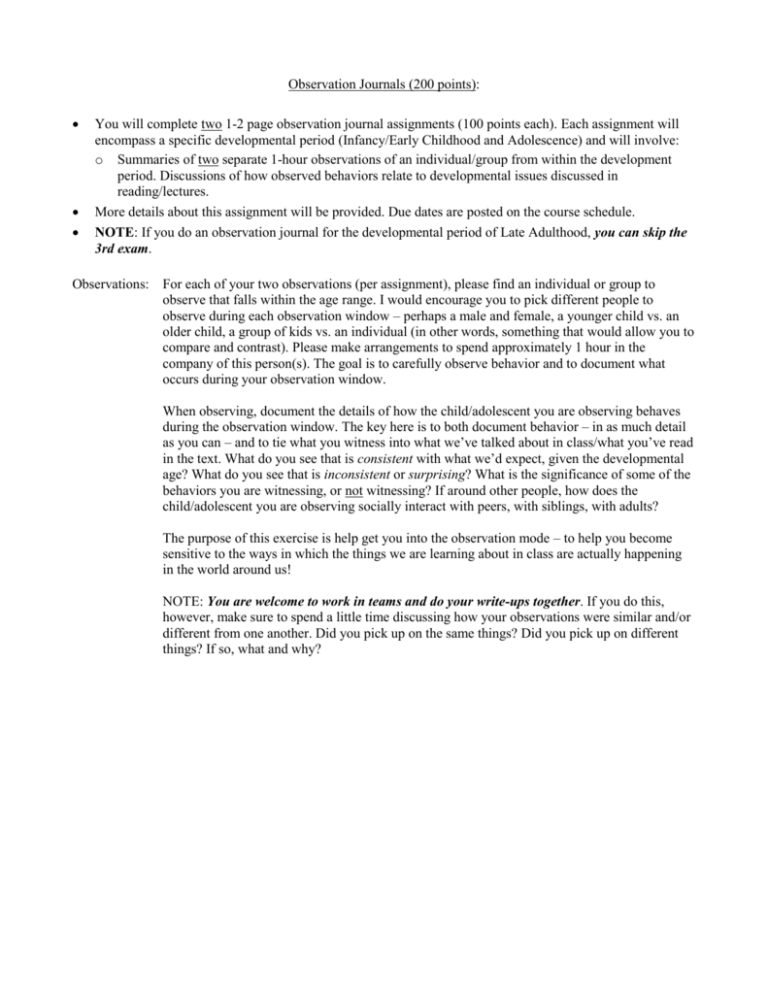
Observation Journals (200 points): You will complete two 1-2 page observation journal assignments (100 points each). Each assignment will encompass a specific developmental period (Infancy/Early Childhood and Adolescence) and will involve: o Summaries of two separate 1-hour observations of an individual/group from within the development period. Discussions of how observed behaviors relate to developmental issues discussed in reading/lectures. More details about this assignment will be provided. Due dates are posted on the course schedule. NOTE: If you do an observation journal for the developmental period of Late Adulthood, you can skip the 3rd exam. Observations: For each of your two observations (per assignment), please find an individual or group to observe that falls within the age range. I would encourage you to pick different people to observe during each observation window – perhaps a male and female, a younger child vs. an older child, a group of kids vs. an individual (in other words, something that would allow you to compare and contrast). Please make arrangements to spend approximately 1 hour in the company of this person(s). The goal is to carefully observe behavior and to document what occurs during your observation window. When observing, document the details of how the child/adolescent you are observing behaves during the observation window. The key here is to both document behavior – in as much detail as you can – and to tie what you witness into what we’ve talked about in class/what you’ve read in the text. What do you see that is consistent with what we’d expect, given the developmental age? What do you see that is inconsistent or surprising? What is the significance of some of the behaviors you are witnessing, or not witnessing? If around other people, how does the child/adolescent you are observing socially interact with peers, with siblings, with adults? The purpose of this exercise is help get you into the observation mode – to help you become sensitive to the ways in which the things we are learning about in class are actually happening in the world around us! NOTE: You are welcome to work in teams and do your write-ups together. If you do this, however, make sure to spend a little time discussing how your observations were similar and/or different from one another. Did you pick up on the same things? Did you pick up on different things? If so, what and why?

